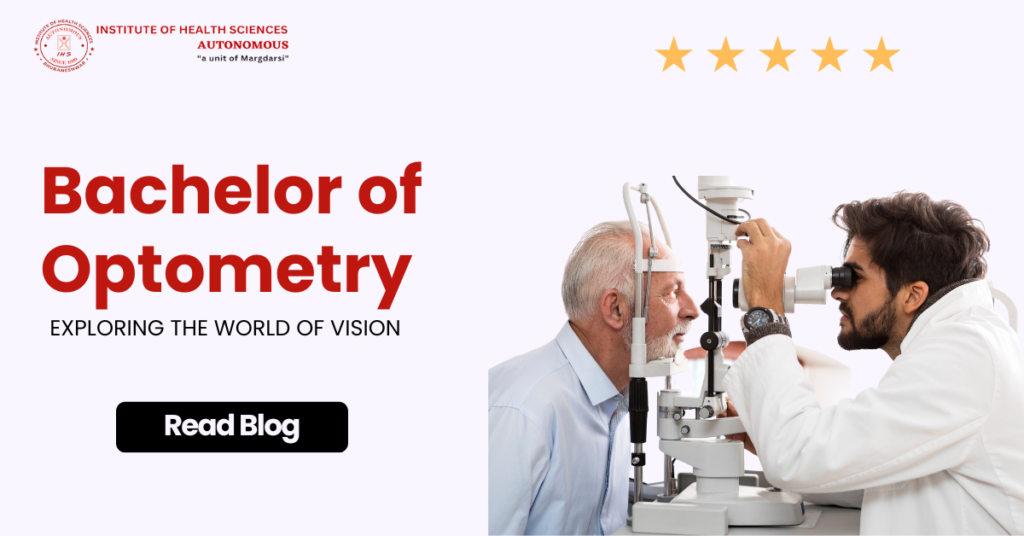The world around us is a canvas of colors, shapes, and wonders, all beautifully brought to life through our sense of sight.

Our eyes are the windows to this vibrant universe, allowing us to experience the world in all its glory. However, for countless individuals, vision-related challenges can cloud this experience, making everyday tasks a struggle.
This is where the field of optometry steps in, with the Optometry course serving as a gateway to understanding, diagnosing, and addressing these vision issues.
Unveiling the Role of Optometrists
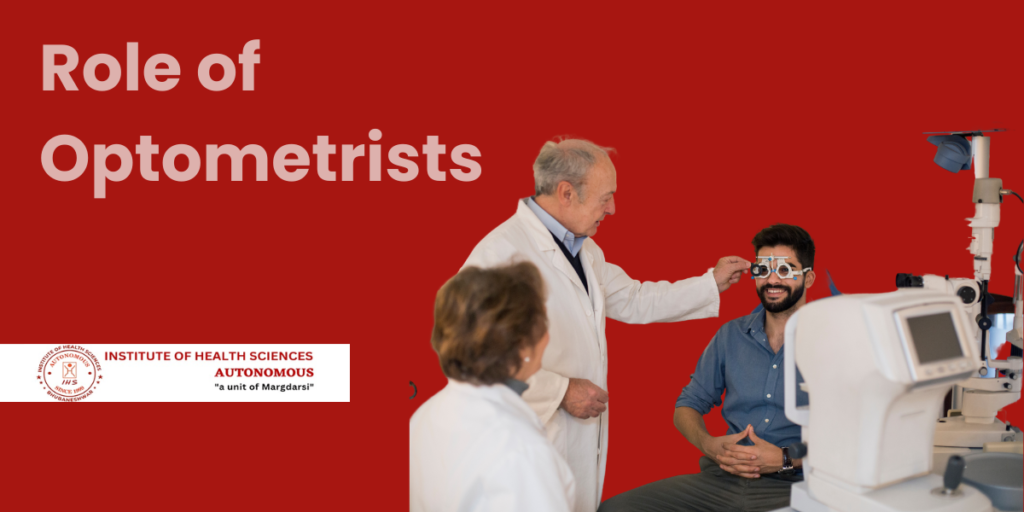
Optometrists are the unsung heroes of eye care, possessing the expertise to provide solutions that significantly improve patients’ quality of life.
The Bachelor of Optometry course offers aspiring professionals a comprehensive education in the science of vision and eye health.
This Optometry course serves as the foundation upon which optometrists build their careers, becoming the primary source of vision care for many individuals.
Read More: Career In Occupational Therapy
Embracing a Holistic Curriculum
A Bachelor of Optometry course is a holistic journey that equips students with a deep understanding of the complexities of vision and eye health.
The curriculum is designed to strike a balance between theoretical knowledge and practical skills, ensuring that graduates are well-prepared to tackle the challenges of the field.
Key Areas Covered in the Curriculum
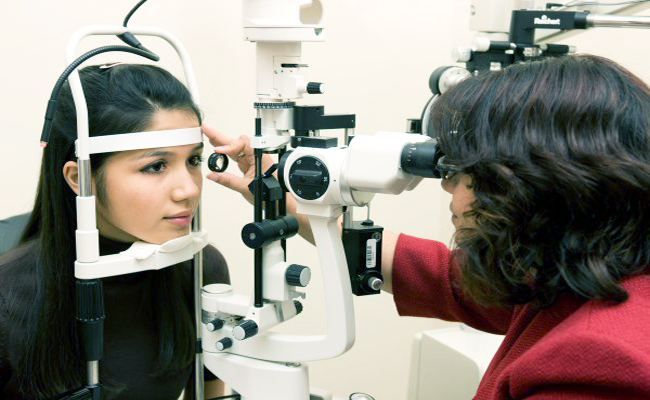
Anatomy and Physiology of the Eye: A thorough exploration of the eye’s structure and its intricate mechanisms forms the cornerstone of optometric education.
This knowledge is vital for diagnosing and managing various eye conditions.
Optics and Refraction: Understanding the behavior of light as it interacts with the eye is essential for prescribing corrective lenses.
This subject covers everything from myopia to astigmatism, empowering students to enhance visual acuity.
Read More: Public Health Course
Ocular Diseases and Therapeutics: An in-depth study of common eye diseases, their diagnosis, and management helps students identify and address a wide range of ocular conditions.
Contact Lens Practice: Students learn the art of fitting, prescribing, and managing contact lenses, catering to patients seeking vision correction without glasses.
Binocular Vision and Visual Rehabilitation: This area explores how the eyes work together and introduces techniques to address visual coordination issues.
The Power of Hands-On Experience
The Bachelor of Optometry course goes beyond textbooks, offering students hands-on experience in clinical settings. This practical training is invaluable, as it bridges the gap between theory and real-world application. Students interact with patients, perform eye examinations, and gain insights into the intricacies of patient care.
Paving Pathways for Careers
Upon completing the Bachelor of Optometry course, graduates open doors to diverse career opportunities. These professionals become an integral part of healthcare teams, contributing to eye care and vision enhancement. Some of the exciting avenues for optometrists include:
- Private Practice: Establishing their own clinics and providing personalized eye care.
- Hospitals and Clinics: Collaborating with medical professionals to manage various eye conditions.
- Corporate Eye Care: Ensuring optimal vision health for employees in corporate settings.
- Academia and Research: Contributing to knowledge advancement and educating future optometrists.
Read More: BASLP Subjects
Syllabus Of Optometry Course
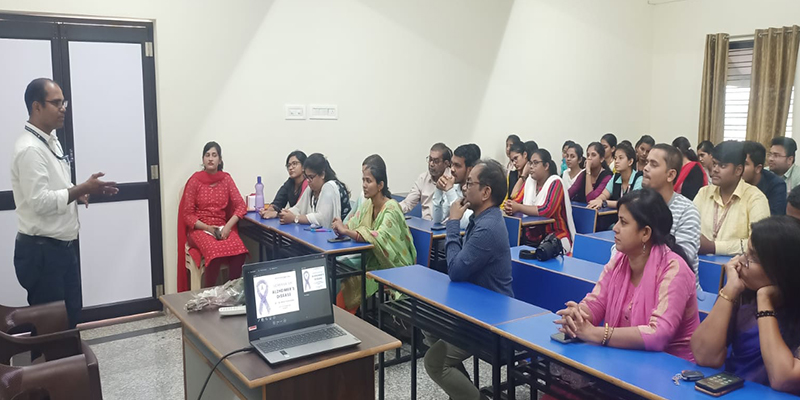
The syllabus of the Bachelor of Optometry program encompasses a diverse range of subjects designed to provide students with a comprehensive understanding of vision science, eye health, and optometric practices. This program typically spans over four years and includes theoretical knowledge as well as practical training.
Here’s an overview of the syllabus:
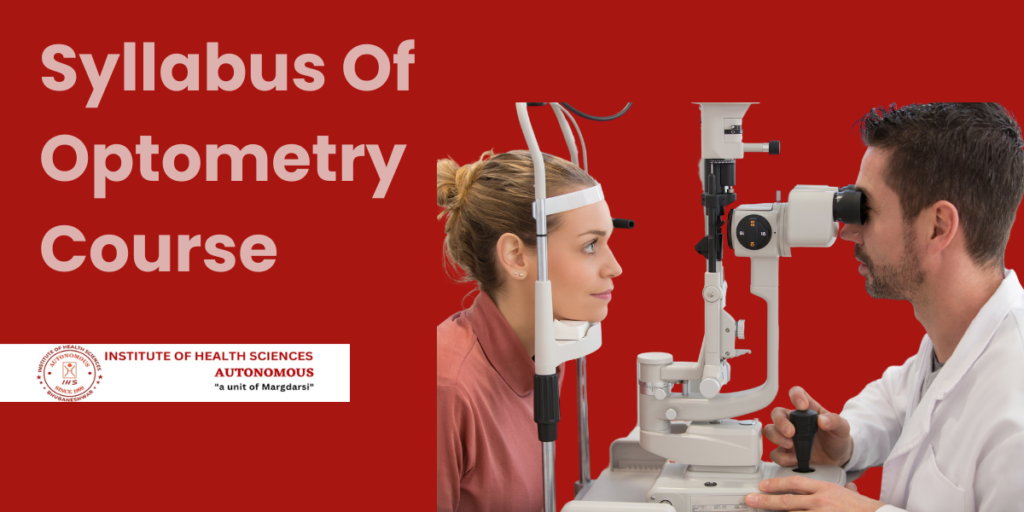
Year 1: Foundation Courses
- Anatomy and Physiology
- Basic Biochemistry
- Basic Microbiology
- Basic Pathology
- English Language and Communication Skills
Year 2: Core Optometry Subjects
- Geometrical Optics
- Ocular Anatomy and Physiology
- Optometric Instruments
- Dispensing Optics
- General and Ocular Pharmacology
- Visual Optics
- Visual Optics Practical
Year 3: Advanced Optometry and Clinical Subjects
- Ocular Disease
- Clinical Optometry
- Contact Lens Optometry
- Low Vision Aids and Vision Rehabilitation
- Binocular Vision and Orthoptics
- Community Optometry and Public Health
Year 4: Specialized Subjects and Internship
- Pediatric Optometry and Geriatric Optometry
- Neuro-optometry and Sports Vision
- Occupational Optometry and Industrial Vision
- Research Methodology
- Internship and Clinical Training
The Practical Component: Throughout the program, students participate in clinical rotations, internships, and hands-on training in optometric practices. This practical exposure equips students with the skills needed to apply theoretical knowledge in real-world scenarios, interact with patients, perform eye examinations, and prescribe corrective measures.
Additional Courses: In some institutions, students might have the opportunity to take elective courses or additional certifications in specialized areas such as advanced contact lens fitting, myopia control strategies, and vision therapy.
Read More: 5 High Salary Career Options in Medical Without NEET in India
The Autonomous Institute of Health Sciences Advantage
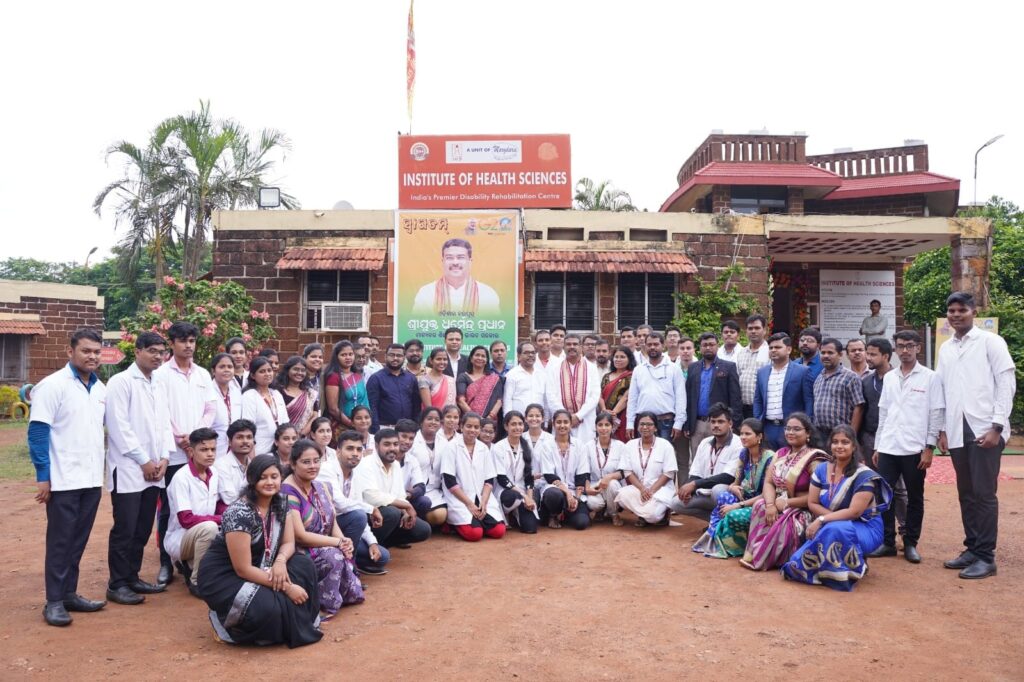
When considering institutions to pursue a Bachelor of Optometry course, the Autonomous Institute of Health Sciences in bhubaneswar stands out as a superior option.
With its commitment to excellence in healthcare education, it offers students a unique blend of theoretical rigor and practical exposure.
The institute’s state-of-the-art facilities and experienced faculty create an environment conducive to holistic learning.
The institute’s focus on hands-on training ensures that students graduate not only with theoretical knowledge but also with the confidence to handle real-world scenarios.
This insitute is a unit of Margdarsi which is a best physiotherapy centre in bhubaneswar.
Moreover, the Autonomous Institute of Health Sciences understands the evolving field of optometry and equips students with the latest industry trends and technological advancements.
In conclusion, the Bachelor of Optometry course in odisha unlocks a world of possibilities for those passionate about enhancing vision and eye health.
It’s a journey of scientific discovery, compassionate care, and profound impact.
11 Top (& Honest) Reasons To Choose Institute of Health Sciences, Bhubaneswar
And when choosing an institute for this transformative journey, the Autonomous Institute of Health Sciences emerges as the ideal choice, where students are nurtured to become proficient optometrists, dedicated to enriching lives through better vision.
It also offers courses such as Public Health Course, Master Degree In Psychiatric Social Work, BASLP course, Bachelor of Physiotherapy, Master in Rehabilitation Science, MA in Yoga, B.Ed. in Autism, Other Certification Courses.
Read More: BASLP Admission 2023

Frequently asked question on- Optometry Course
[saswp_tiny_multiple_faq headline-0=”h4″ question-0=”Does optometry require NEET?” answer-0=”No, NEET is not mandatory for optometry courses. Admissions criteria may vary.” image-0=”” headline-1=”h4″ question-1=”Is optometrist a doctor degree? ” answer-1=”Optometrists hold a doctoral degree in optometry (OD), focusing on eye care and vision correction.” image-1=”” headline-2=”h4″ question-2=”Which course is best for optometrist?” answer-2=”B.Sc. Optometry or Bachelor of Optometry are popular choices.” image-2=”” headline-3=”h4″ question-3=”What is the scope of BSc optometry?” answer-3=”BSc Optometry offers a wide scope in eye care clinics, hospitals, and research.” image-3=”” headline-4=”h4″ question-4=”What is eye doctor called?” answer-4=”Eye doctors are known as optometrists or ophthalmologists.” image-4=”” headline-5=”h4″ question-5=”Is it hard to study optometry?” answer-5=”It requires dedication but is rewarding. Clinical practice and theory are balanced.” image-5=”” headline-6=”h4″ question-6=”Is MBBS necessary for ophthalmology?” answer-6=”Yes, MBBS followed by MS/MD in Ophthalmology is common.” image-6=”” headline-7=”h4″ question-7=”Can I open a clinic after BSc optometry? ” answer-7=”Yes, after necessary registrations and gaining experience.” image-7=”” headline-8=”h4″ question-8=”Does optometry have scope?” answer-8=”Yes, it’s a growing field with increasing demand.” image-8=”” headline-9=”h4″ question-9=”How can I get a job after optometry?” answer-9=”Apply in hospitals, clinics, optical chains, and set up private practice.” image-9=”” headline-10=”h4″ question-10=”Is optometrist in demand in India?” answer-10=”Yes, rising awareness of eye health fuels demand.” image-10=”” headline-11=”h4″ question-11=”What is the salary of B optometrist in India per month?” answer-11=”Entry-level salaries vary but can range from ₹20,000 to ₹40,000 per month.” image-11=”” headline-12=”h4″ question-12=”What is the salary of optometrist in AIIMS?” answer-12=”It can range from ₹50,000 to ₹80,000 or more based on experience and role.” image-12=”” headline-13=”h4″ question-13=”Can I do optometry without maths? ” answer-13=”Some institutes offer optometry courses without requiring mathematics.” image-13=”” headline-14=”h4″ question-14=”What is the salary of MSc optometry in India? ” answer-14=”Experienced MSc optometrists can earn around ₹40,000 to ₹60,000 per month.” image-14=”” count=”15″ html=”true”]
